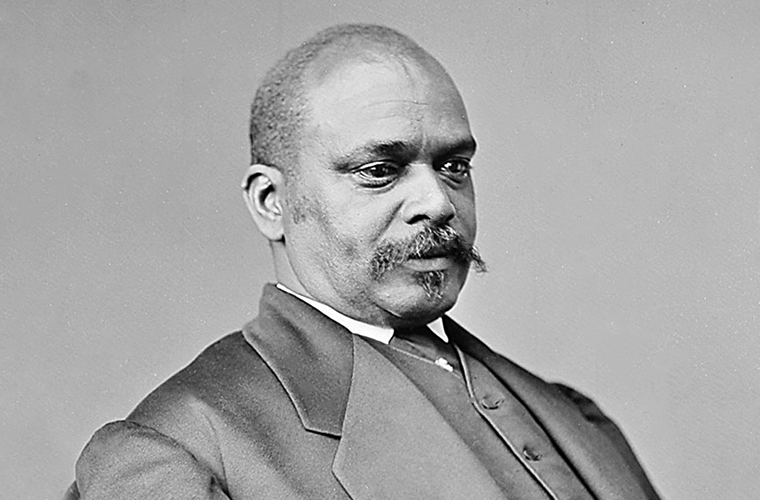Louisiana’s First Black Lieutenant Governor
Oscar J. Dunn is significant in Louisiana’s history as the first Black Lieutenant Governor. Born in New Orleans, Dunn’s life was marked by perseverance, resilience, and a relentless pursuit of civil rights and equality. His journey from slavery to political leadership is a testament to his unwavering commitment to improving his community and advancing civil rights for all.
Oscar J. Dunn was born to an unknown father and a Black mother in New Orleans. His mother, who operated lodging rooms patronized by White actors and actresses, later married a mulatto stage carpenter named Dunn, from whom Oscar adopted his last name. As a young man, Dunn experienced the harsh realities of slavery but managed to flee bondage and purchase his freedom. Despite the limitations imposed by his circumstances, Dunn was self-educated, primarily through reading letters, and learned the art of public speaking from actors who frequented his mother’s lodging establishment. Additionally, he worked as an apprenticed plasterer during his childhood and later pursued a career as a music teacher in his young adult years.
Dunn’s dedication to the cause of freedom extended to his military service during the Civil War. He fought in the Union Army for the 1st Louisiana Native Guard, a notable all-black regiment that played a crucial role in the Union’s efforts during the war. Dunn’s ascent from Private to Captain within the Native Guard reflected his leadership abilities and unwavering commitment to the fight for justice and equality.
Dunn’s foray into politics began during the tumultuous period of Reconstruction in Louisiana. At mass meetings in New Orleans in December 1864, he emerged as a powerful voice advocating for Black legal equality and suffrage in the state’s new government. His unwavering dedication to these causes led to his election as one of only seven Black men in Louisiana’s Senate in 1868, making him the sole former slave to hold such a position. Throughout his tenure, Dunn remained steadfast in his pursuit of civil rights and suffrage for Black citizens, challenging discriminatory policies and advocating for meaningful change.
Dunn’s political career was marked by numerous challenges as he navigated the complex landscape of post-war Louisiana. He staunchly opposed President Andrew Johnson’s policies, particularly those related to pardoning former rebels without enforcing a loyalty oath and returning seized lands to former slaveholders. Dunn also resisted efforts to force African Americans back onto their former owners’ plantations as sharecroppers and “convict” labor. His unwavering advocacy for justice and equality brought him into conflict with powerful figures, including Governor Henry C. Warmoth, whom he challenged in a bid for the governorship.
Oscar J. Dunn’s legacy extends far beyond his tenure as Louisiana’s first Black Lieutenant Governor. His tireless advocacy for civil rights and suffrage, his unwavering commitment to challenging injustice, and his resilience in the face of formidable opposition continue to inspire generations. Despite his untimely death in 1871, Dunn’s contributions paved the way for future leaders and activists to continue the fight for equality and justice. Oscar J. Dunn’s remarkable journey from slavery to political leadership stands as a testament to the indomitable spirit of those who strive for a more just and equitable society. His impact on Louisiana’s history and the broader struggle for civil rights reverberates through time, serving as a reminder of the enduring legacy of those who dare to challenge injustice and advocate for meaningful change.

